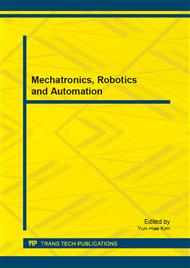p.1728
p.1735
p.1739
p.1743
p.1747
p.1751
p.1757
p.1763
p.1768
Automatic Generation of Standard Examination Questions Based on Ontology
Abstract:
Examination question is one of the important tools that reflect students' learning situation and teachers' teaching effectiveness. Traditional questions were generated by the teacher manual, which will lead to the disadvantages of inefficient work and no reusable examination. In order to overcome these disadvantages, the paper proposes an ontology-based approach to standardized examination questions, which automatically generates questions and focuses on the multiple-option questions.
Info:
Periodical:
Pages:
1747-1750
Citation:
Online since:
August 2013
Authors:
Price:
Сopyright:
© 2013 Trans Tech Publications Ltd. All Rights Reserved
Share:
Citation:


